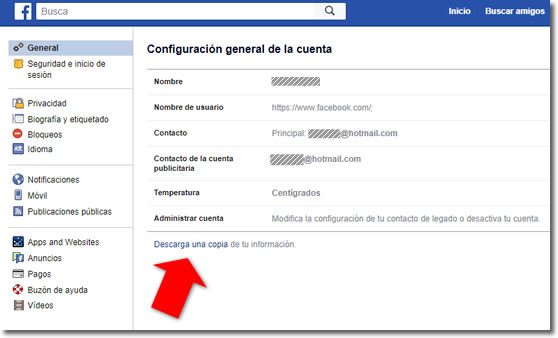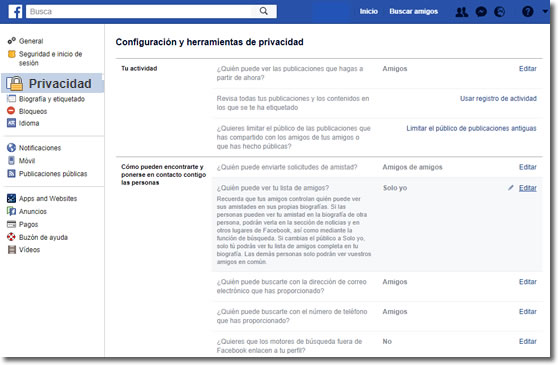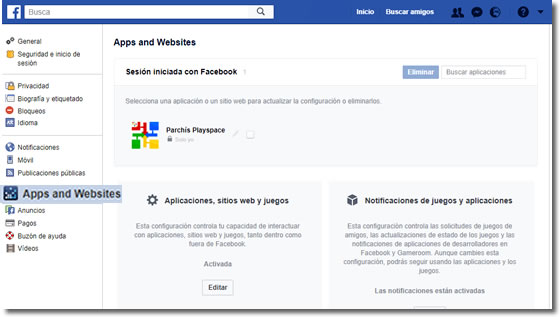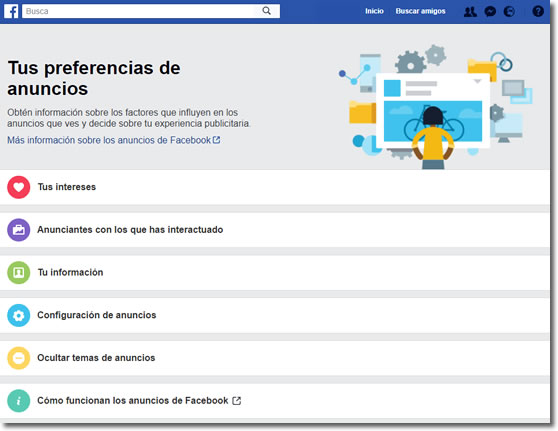Facebook information has been used to manipulate its users. This is the emphatic assertion that we can draw when knowing the details of the scandal in which Facebook and the British company Cambridge Analityca have been involved.

The personal information of the profiles of Facebook has been used in mass by this company to elaborate advertising strategies with the purpose of influencing in the past presidential elections of the USA, at least that is what emerges from the investigations published in some media as this article from Xataka.
What was it?
The first step of the company Cambridge Analityca, dedicated to the succulent business of influencing the opinion of people through targeted advertising campaigns, was to create a tool for data collection.
It was a simple personality test with “academic purposes” that asked key questions to the users who took it. It was disseminated through Facebook, after payment of the corresponding financial amount, as if it were an advertisement. It consisted of an application that asked users for permission to access both their profiles and their contacts, and that was the secret of the tool. It ended up catching the profiles of 320,000 users. The problem is that on average those users had in turn 160 contacts whose profiles, without knowing it, were available to their creators.
In about three months the system made the company count on the information of the Facebook profiles of some 60 million Americans, a huge amount of information that, properly treated, would help to create models and algorithms with which to create electoral campaigns directed to influence the vote.
The information collected and especially the algorithms created from these data made this service a worrying way to influence all types of people and groups. Once the data was collected and the voter profile was created, they were able to influence it in an invisible and imperceptible way.
“There were creative teams, designers, video producers, photographers. That created content was sent to a ‘targeting’ team, which would end up injecting it into the Internet. Websites, blogs would be created, whatever we believed that this objective profile needed to be receptive, we would create it so they would find it. And then they would see it, they would click, and they would go deeper into that hole until they ended up thinking something different from what they thought.”
What does Facebook keep in our profile?
The answer is very simple: it saves everything we have done in their social network. The more activity on the net, the more information about our tastes, priorities, social level, etc.
Although we do not openly share our political ideas, nor our social status, age, etc., a few “likes” will suffice for these “intelligent” algorithms to determine a large amount of information that we believe is inaccessible.
In summary, the more information we contribute on this and other social networks, the more likely we are to be the target of targeted advertising campaigns. Whether we let ourselves be influenced or not, will depend on ourselves and the ability to realize that we are being manipulated.
Facebook is against these uses of its social network and defends itself by saying that the authors of this scandal have clearly abused its rules.
But in reality, Facebook is “very little to blame” of what happened. It was the users themselves who provided the information to the social network and then allowed a certain application to access all their data. We are always asked for permission to register a new application in our Facebook account and explained the data to which it will have access. But many people accept without knowing what data will be taken and of course, without knowing what they will be used them for.
Facebook has created this page where we can check if our profile may have been used by Cambridge Analytica.
We also have at our disposal this page where Facebook explains the type of information they can save from their users. It is impressive to see the huge number of different sections and data that can be stored.
If we want to know the information stored in our profile, we must download a file from its Settings page, in its General section, link “Download a copy“

Once downloaded to our computer, we will have to unzip it, since it is a ZIP file. Once unzipped we can see all the information in our usual browser organized in webpages if we execute the file “index.htm”.
If we see something that we did not expect and wish to withdraw it, we must look for it in the corresponding section of our Facebook account to delete it.
How to improve privacy on Facebook
This social network is very complex and collects personal information in many places. It is worth spending a good while reviewing all the sections of its configuration, especially those related to privacy.
We will not fail to check the following:
Settings> Privacy. It is convenient to review all the sections of this section and limit them to our liking. For most users it would be convenient to choose the most restrictive options in all of them.

Settings> Applications. Many times we authorize applications and other Web services that we no longer use. It is convenient to review the section in case we can limit the permissions or uninstall them completely.

Settings > Ads
Although we will not be able to eliminate advertising on Facebook, we may find it interesting to hide our interests to prevent them from attacking us with targeted advertising. We must review the following sections within the Ads section.

- Your interests: it is based on our “likes” and we can eliminate them easily if we believe that it may cause unwanted advertising.
- Profile information. It is convenient to review all the information that we have included in our profile, even if we have configured it as ‘Only me’. To be sure that our data will not be read by anyone or anything, it is best not to write them. We just have to go to our profile and enter the option ‘Edit profile‘ to modify or eliminate them.
- Advertisers with whom you have interacted. It is convenient to review the different tabs and eliminate what does not really interest us (or better altogether).
- Your information. Both the About you and Your categories section. Surely it will also be convenient to eliminate all the features stored there, which draw a profile of us.
- Ad settings. Read and select according to our criteria.Hide topics. We can block some of the preferential criteria used by advertisers to address advertising.
Profile information. It is convenient to review all the information that we have included in our profile, even if we have configured it as ‘Only me’. To be sure that our data will not be read by anyone or anything, it is best not to write them. We just have to go to our profile and enter the option ‘Edit profile‘ to modify or eliminate them.
